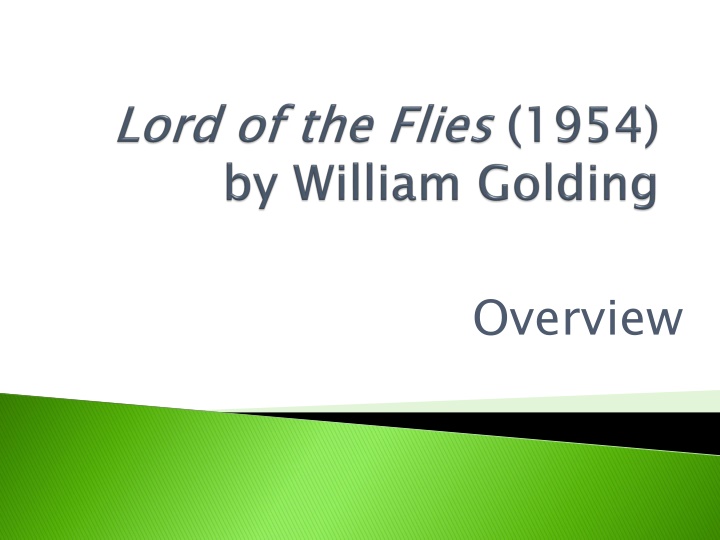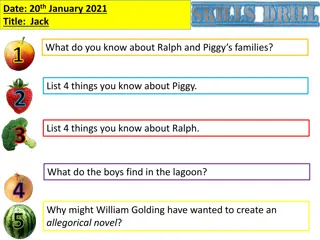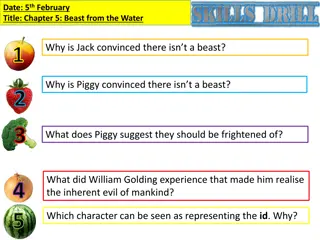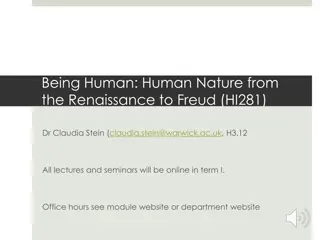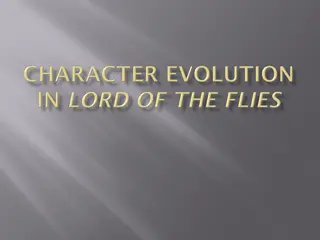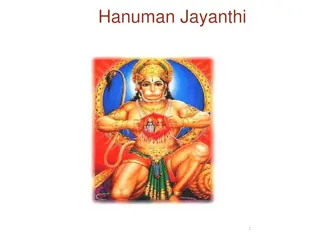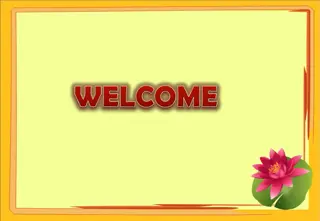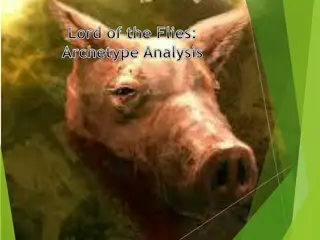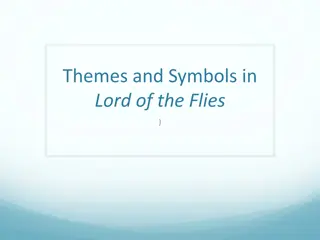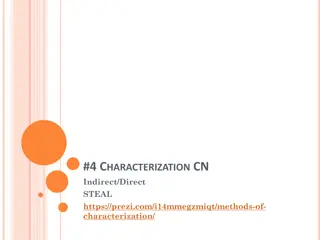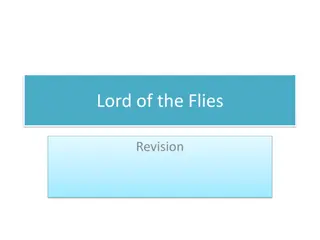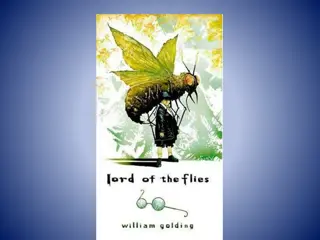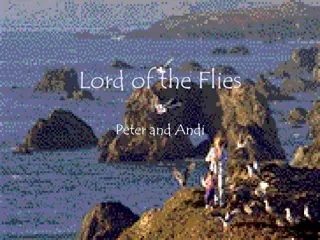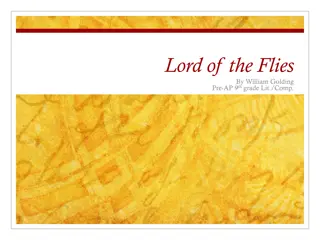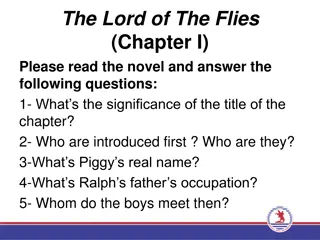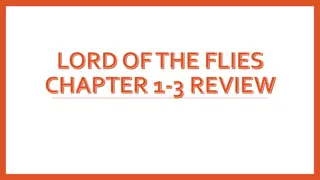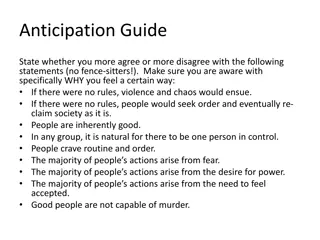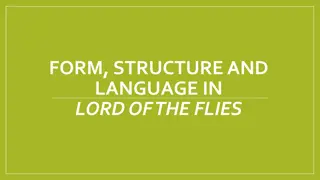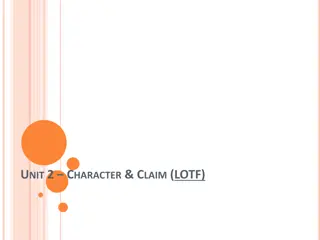Reflections on Wars and Human Nature: Insights from "Lord of the Flies
World Wars I and II have left lasting impacts on society, economy, and culture. "Lord of the Flies," written in the aftermath of WWII, delves into themes of the brutality of war, the defects of human nature, and the struggle between civilization and savagery. Through allegorical, religious, psychoanalytical, socio-political, and ecocritical lenses, the novel explores the ethical nature of society and the inherent human struggle between good and evil.
Download Presentation

Please find below an Image/Link to download the presentation.
The content on the website is provided AS IS for your information and personal use only. It may not be sold, licensed, or shared on other websites without obtaining consent from the author.If you encounter any issues during the download, it is possible that the publisher has removed the file from their server.
You are allowed to download the files provided on this website for personal or commercial use, subject to the condition that they are used lawfully. All files are the property of their respective owners.
The content on the website is provided AS IS for your information and personal use only. It may not be sold, licensed, or shared on other websites without obtaining consent from the author.
E N D
Presentation Transcript
World War I: great impact on economy, society and culture Between the wars: attempts at reconstruction, economic crisis World War II: concentration camps, Pearl Harbour, Hiroshima and Nagasaki atomic bombs After World War II: Cold War Lord of the Flies was written in the aftermath of World War II and published in 1954: threat of nuclear war, fear, horrors of the war Protagonists of LF are being evacuated from England because a nuclear war has started
Worked as a teacher Joined the Navy in 1940 Commanded a ship during WWII Idealistic view, but the war changed it Shocked by the discovery of what humans could do: parallelism between his experience during the war and LF
Before WWII, I believed in the perfectibility of social man but after the War I did not I had discovered what one man could do to another I learned during World War II just how brutal people can be to each other. Not just Germans or Japanese, but everyone. I tried to point that out [ ] Some have said that the brutality of the novel is impossible. It's not. Look at any newspaper [ ]
The theme is an attempt to trace the defects of society back to the defects of human nature. The moral is that the shape of a society must depend on the ethical nature of the system respectable. individual however and not apparently on any political logical or
A group of English schoolboys marooned on a tropical island after their plane has crashed Exploration of the idea of human evil Without rules and outside of civilization, boys descend into savagery Human struggle between civilizing and savage instincts Straightforward writing style
Allegorical approaches: Representation of the history of civilization Religious reading: good and evil Psychoanalytical reading: Freud Socio-political reading: criticism of society Ecocritical approaches: human vs nature Legal approaches: law vs anarchy
Ralph responsible, sensitive leader physical and moral courage Piggy Outsider: fatty, asthma Adult-like Jack Aggressive, obsessed with power Rules with fear and force Simon: Physically frail saint acts of kindness, powers of vision The Littluns: Young boys, they play and eat fruits They introduce the idea of the beast
Good and evil Order and discipline Savagery Power Nature Crowd mentality Cold War
The conch Piggy s glasses The fire The Beast The Lord of the Flies
Ralph: democracy, civilisation, order Jack: dictatorship, savagery, chaos Simon: morality, nature, goodness Piggy: intellect, adulthood The littluns: the common people Roger: brutality
